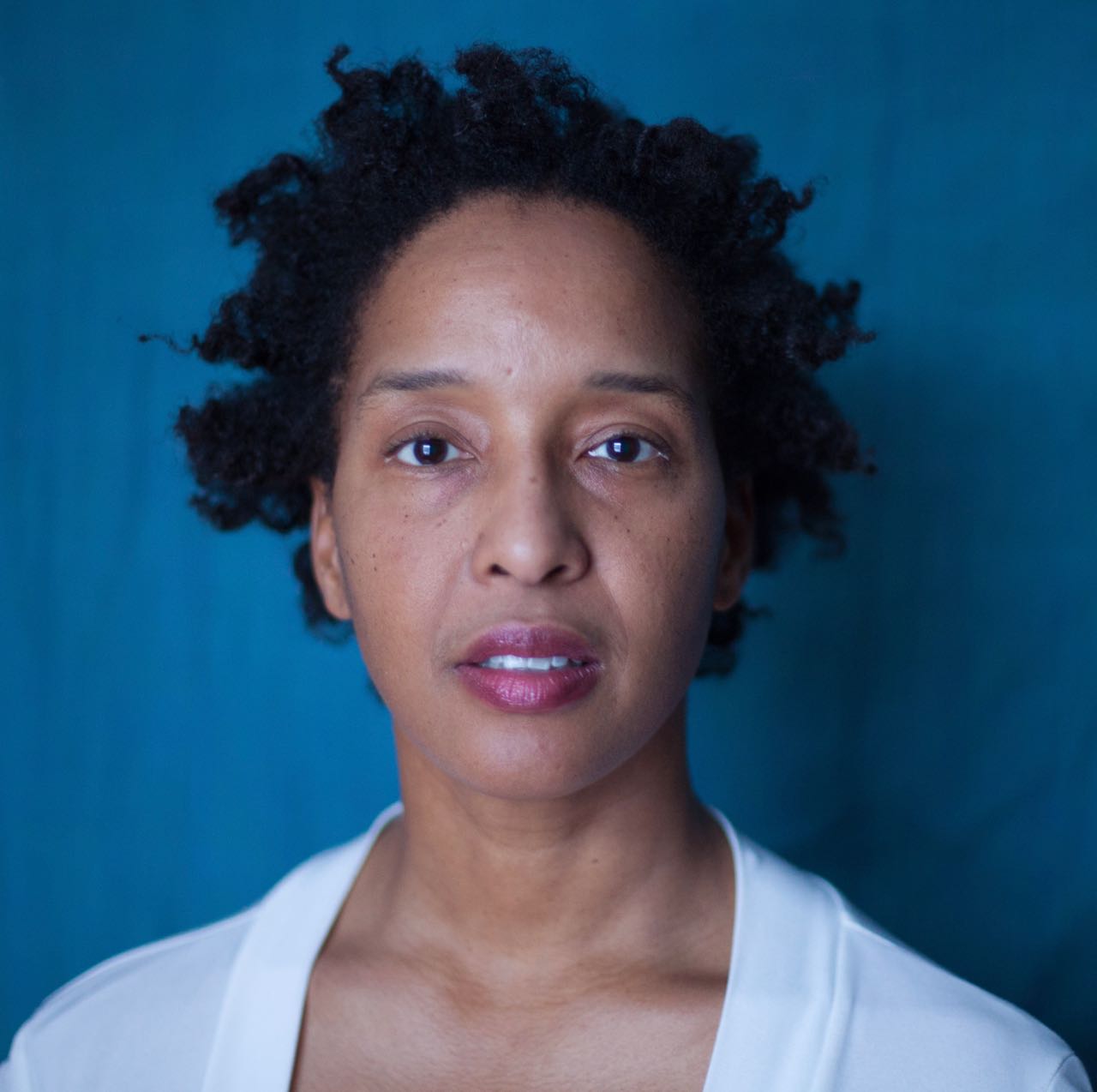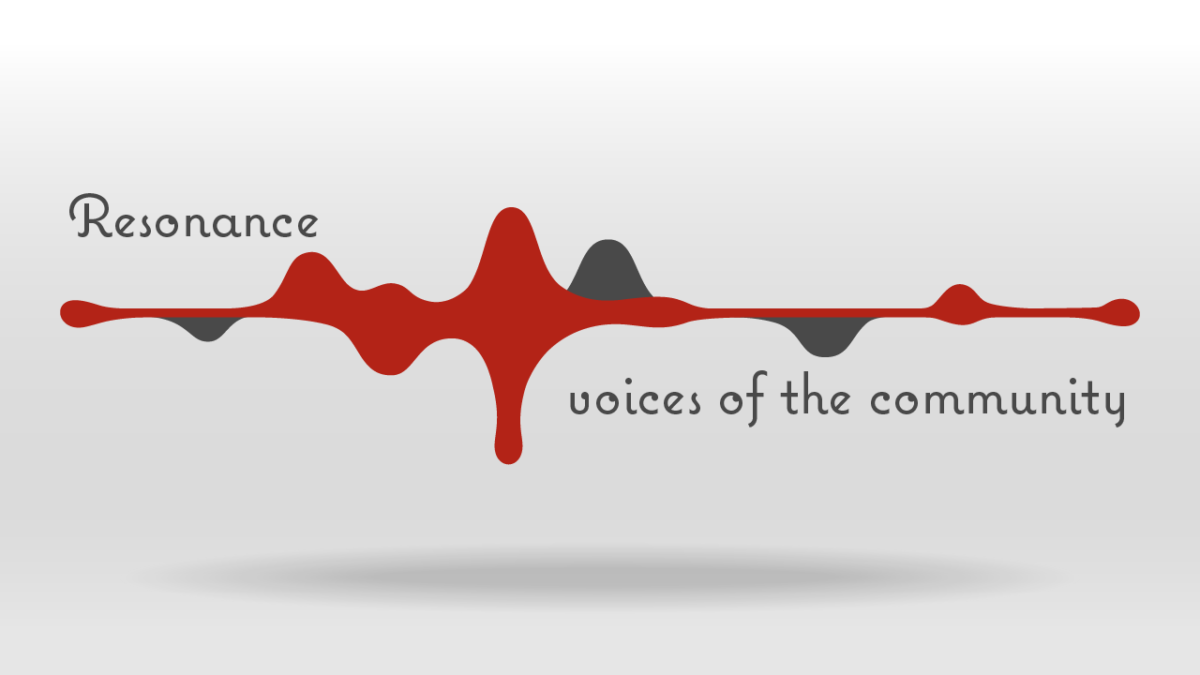Friday, September 4th, 2020

The Healing Culture Work of Composer and Vocalist Mankwe Ndosi
by Sun Yung Shin
“The aim of each thing which we do is to make our lives and the lives of our children richer and more possible.” – Audre Lorde 1
“I don’t try to please when I play. I try to cure.” – Ornette Coleman 2
“Creative practices are about how we enliven our lives, our daily lives.” – Mankwe Ndosi
To speak with Minneapolis-based vocalist and composer Mankwe Ndosi is to encounter a healer. She is an artist whose music and collaborative practices are medicinal, elemental, relational, and rigorous. It’s a tender time to query artists about their practices, visions, and desires, yet Ndosi is so grounded that her responses seemed to come from a place of deep knowing, of the confidence of an artist sure of her purpose in this life.
Mankwe Ndosi is a musician, certainly, but, getting more specific, she explained, “I call myself a culture worker, and singing is what I perform, definitely; I started in theater but singing is the thing that I can do and the thing that I think I do best. And my singing is done not as a way of “performance” in a certain way, or to make pretty sounds always—pretty sounds are lovely—and not as a way to [only] display skill, but to express the stories, good, bad, and the ugly, through sound, through the sounds we hear around us, sounds we make inside and out.” The body is essential to her work, not only because the sounds are created by the body, but because the body holds the systems of perception through which we experience the world.
Eschewing the trope of the egoistic artist, Ndosi’s work is highly relational, “A lot of how I compose is with the birds, and with my imagination. And with play and with the sounds of daily life, and learning about music; honestly it’s through relationships, through relationships with people and people bringing music to me.”
It was not inevitable that Ndosi would become a performer. She has a Harvard degree in social studies and economics, and her calling as a musician was not answered without challenge, “I think I grew up with patterns that made being an artist kind of a risky choice. I mean, a lot of people talk about new immigrant expectations. My father was from Tanzania, my mother from St. Louis, Missouri. And so being a composer even was sort of being a rebel in a certain way, being a musician, being an artist, was kind of being a rebel in a certain way.”
While coming from a Black immigrant family offered a kind of pressure in one way, it also was the foundation of Ndosi’s love of all kinds of music and her own fluidity and freedom as a vocalist, “I never called what I do like extended vocal technique or all of these kinds of things because I didn’t come out of schools like that. And because for me it was like communication with the world. And being curious because I grew up with people with music from all over the world, my father hosted people from India, Italy, Germany, South Africa, China; we listened to music from all over the world, and singers from all over the world. I understood that there wasn’t one way to sing. That gave me access to a lot of curiosity, access to the conceptualization of a wider palette.”
She recalled how her academic work in college influenced her approach to becoming the culture worker she is today with commitments to social justice and liberation, “I also was interested in social sciences, society and institutions, and the relationship between the institution and the people who do the work. I think because of that, being an artist involved some grit there, some friction there to accept myself, such that I felt like [my art] had to make a [socially-engaged] difference. And that in combination with my just questioning, not taking the way society is structured as given or forever. No, knowing that it’s kept up and kept alive and kept in place by human beings, and it’s made by human beings, and knowing that in colonial culture the arts are shaved off.”
When asked about how she thinks about formal music training, she reflected on the kinds of questions she asks herself in the moment while performing or collaborating, “My improvisation comes from having a question about if I could receive song. So what is the song? What is the sound that is necessary right now? What is the sound that is being asked for right now?; this helped me kind of sidestep insecurity about not having been to art school or not having a big gospel voice, etc.”
Ndosi paid tribute to musical mentors and role models who have forged space globally and locally, “I feel like I sought out elder artists with a lot of intensity and priority. So that was definitely and other artists primarily who had learned by doing as well, which was what was feeling true to me. I think it’s important and critical. These include Sharon Bridgforth, Laurie Smith Carlos—and the legacy of black women interdisciplinary performance makers that I have been blessed to work with. These women have been making new forms, new realms of possibility for theater artists around the world. Their work makes a home where my full performance self can be realized.” She envisions a generous future, “I have big dreams to keep practicing and keep working with my voice and to be able to continue to collaborate with these amazing musicians, all over the world which I’ve been fortunate through, you know through Douglas Ewart and Janis Lane Ewart, and the AACM (Association for the Advancement of Creative Musicians). Nicole Mitchell is just an amazing trailblazer, a waymaker for a lot of women artists, a lot of artists, creative artists who could actually find places where it is possible for there to be a career, and it’s possible for the music to be heard.”
Music is spiritual, no doubt. Its materiality as waves and its ephemerality in time are in relationship with the impermanence of our own embodied lives. Live music is paradoxical in that it comes from living beings, but is not itself alive. It makes us feel the intensity of life and can bind us together as we share space. Recorded music transcends time and space, and can never be repeated in exactly that same way. It is the value of things made from life, from nature. Ndosi spoke about the dynamic of listening closely to the audience and holding a holistic, living curiosity with precision, “Sometimes it’s more fun I think for people to be in it than to listen to it. And I think that’s sort of where some of what I do is bridge some of that. Remember the audience. Remember there’s a message and try to listen for the message that’s there.”
“So I listen inside of improvisation to be the glue. It’s like, okay, what are the pieces that put these sounds together? Obviously, if I’m first, I got to lay something down myself, but what are the pieces that can put the sound together? Because if I can find that…it’s an open sort of a curiosity. More than a pinpointing kind of a thing. It’s a wide open curious listening of body and ears and spirit, asking: where am I being affected? I’m going into my solar plexus, especially in the context of bodywork. Where am I feeling it? And then, what is it making me think of, what is it reminding me of, because I improvise language and message as well as a spectrum of sounds. That changes every time because my voice is different every day. And I don’t have a catalog. And so, that’s why the way that I come at it is not from a “schooling” way. But a sort of being or living way. At least that’s what I try to cultivate.”
In the midst of a global pandemic and a civic uprising for racial justice, sparked in Minneapolis by the Minneapolis police’s murder of George Floyd on May 25, now while California burns, while comprising a multi-faceted emergency, also offers potential for profound change. Ndosi offers insight into our current shared social condition, “I think it’s especially interesting in this time when the pandemic has slowed us all down. And you find yourselves again trying to push us ourselves into ‘keep going,’ how do we get as close to what was. It’s not going back. ‘Back’ is what got us here.” Though there are crises, and further unknowns, she sees that “[t]here are possibilities even inside of it.”
Artists are always pulling and pushing society into new worlds, new futures. Those, like Mankwe Ndosi, who orient themselves and their work toward abundance use their radical imaginations to challenge us to grow as collectively, to be better with and to each other, “I want to find and learn the things that make culture change. Make the way for culture change by helping us feel, practice together feeling how we want to feel and supporting each other and learning about each other’s needs. And remember that we have enough.”
